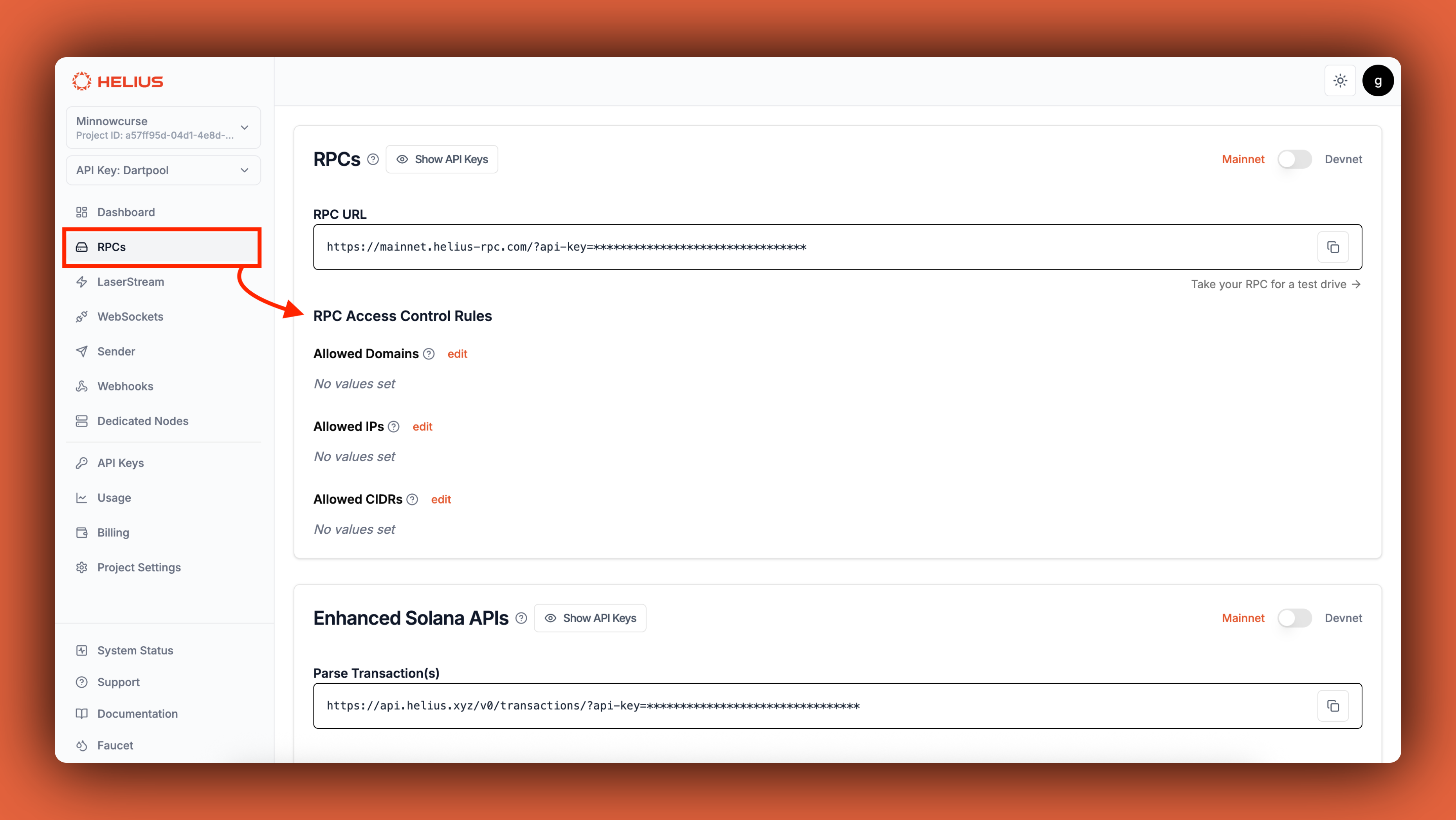Why Key Protection Matters
When you expose API keys on the client side, malicious actors can discover and abuse them, potentially:Exhaust Your Quota
Malicious usage can quickly consume your API limits and cause service interruptions
Increase Your Bills
Unauthorized requests can trigger auto-scaling charges or push you over plan limits
Compromise Security
Exposed keys can provide access to sensitive data and operations
Damage Performance
High unauthorized usage can impact your application’s performance
Protection Methods
Helius provides multiple layers of protection to secure your API keys:- RPC Proxy
- Access Control Rules
- Secure URL
Deploy your own proxy for maximum security and control.
Helius RPC Proxy
A simple, open-source RPC proxy that you can deploy with 1-click to Cloudflare.
Benefits of Using a Proxy
Complete Key Protection
Your API key stays server-side, never exposed to clients
Custom Rate Limiting
Implement your own rate limiting and usage controls
Request Filtering
Filter and validate requests before they reach Helius
Usage Analytics
Monitor and analyze your API usage patterns
Best Practices
Environment Variables
Never hardcode API keys in your source code. Use environment variables instead.
Separate Keys for Different Environments
Use different API keys for development, staging, and production environments.
Regular Key Rotation
Rotate your API keys regularly and immediately if you suspect they’ve been compromised.
1
Generate New Key
Create a new API key in your Helius dashboard
2
Update Applications
Update all applications to use the new key
3
Test Thoroughly
Ensure all services are working with the new key
4
Revoke Old Key
Delete the old key from your dashboard
Monitor Usage
Regularly check your API usage in the Helius dashboard for unusual patterns.Red flags to watch for:
- Sudden spikes in usage
- Requests from unexpected locations
- High error rates
- Usage during off-hours
Security Checklist
✅ Development Security
✅ Development Security
- Use environment variables for API keys
- Never commit API keys to version control
- Use different keys for different environments
- Set up access control rules for development domains
- Use secure URLs for frontend development
✅ Production Security
✅ Production Security
- Implement proper access control rules
- Use RPC proxy for maximum security
- Monitor API usage regularly
- Set up alerts for unusual usage patterns
- Rotate keys regularly
- Document your security procedures
✅ Emergency Response
✅ Emergency Response
- Have a key rotation procedure ready
- Know how to quickly revoke compromised keys
- Monitor for security breaches
- Have contact information for Helius support
- Keep backups of your security configurations
